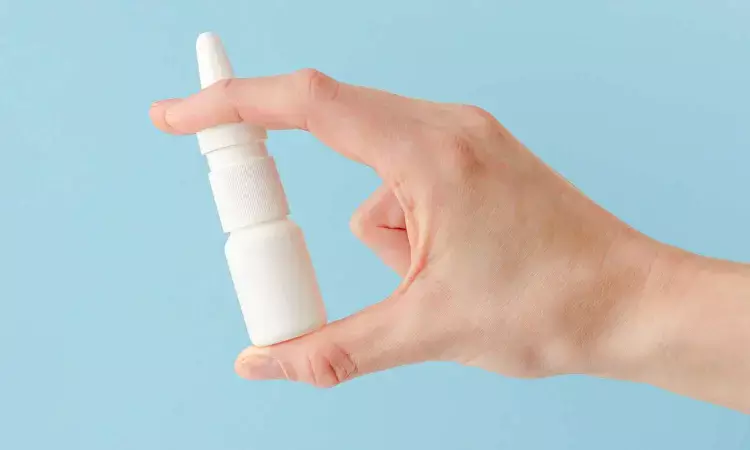- Home
- Medical news & Guidelines
- Anesthesiology
- Cardiology and CTVS
- Critical Care
- Dentistry
- Dermatology
- Diabetes and Endocrinology
- ENT
- Gastroenterology
- Medicine
- Nephrology
- Neurology
- Obstretics-Gynaecology
- Oncology
- Ophthalmology
- Orthopaedics
- Pediatrics-Neonatology
- Psychiatry
- Pulmonology
- Radiology
- Surgery
- Urology
- Laboratory Medicine
- Diet
- Nursing
- Paramedical
- Physiotherapy
- Health news
- Fact Check
- Bone Health Fact Check
- Brain Health Fact Check
- Cancer Related Fact Check
- Child Care Fact Check
- Dental and oral health fact check
- Diabetes and metabolic health fact check
- Diet and Nutrition Fact Check
- Eye and ENT Care Fact Check
- Fitness fact check
- Gut health fact check
- Heart health fact check
- Kidney health fact check
- Medical education fact check
- Men's health fact check
- Respiratory fact check
- Skin and hair care fact check
- Vaccine and Immunization fact check
- Women's health fact check
- AYUSH
- State News
- Andaman and Nicobar Islands
- Andhra Pradesh
- Arunachal Pradesh
- Assam
- Bihar
- Chandigarh
- Chattisgarh
- Dadra and Nagar Haveli
- Daman and Diu
- Delhi
- Goa
- Gujarat
- Haryana
- Himachal Pradesh
- Jammu & Kashmir
- Jharkhand
- Karnataka
- Kerala
- Ladakh
- Lakshadweep
- Madhya Pradesh
- Maharashtra
- Manipur
- Meghalaya
- Mizoram
- Nagaland
- Odisha
- Puducherry
- Punjab
- Rajasthan
- Sikkim
- Tamil Nadu
- Telangana
- Tripura
- Uttar Pradesh
- Uttrakhand
- West Bengal
- Medical Education
- Industry
Nasal Corticosteroids Tied to Higher COVID-19 Risk in Adults: Study

A new study published in the Journal of Allergy and Clinical Immunology showed that adults who used nasal and inhaled corticosteroids had a higher risk of contracting SARS-CoV-2, but not children.
The respiratory virus that caused the COVID-19 pandemic, SARS-CoV-2, usually first infects the upper respiratory tract (URT). The successful entrance of SARS-CoV-2 into the URT cells and the development of infection can be influenced by certain host variables after airborne exposure. For the long-term treatment of asthma and allergic rhinitis, topical airway corticosteroids—like nasal [NCS] or inhaled corticosteroids [ICS]—are the cornerstone of care.
Studies predict that the risk of SARS-CoV-2 infection varies among people who use topical airway corticosteroids when compared to those who do not take these routinely used drugs because they may affect the SARS-CoV-2 URT cell entry mechanism and acute immune response. Thus, this study was set to investigate the relationships between the usage of ICS and NCS and the risk of SARS-CoV-2 infection in people with asthma or allergic rhinitis.
This surveillance research was carried out in child-bearing homes. The participants had nasal swabs taken every 2 weeks, with extra samples made in response to COVID-19-related symptoms.
Using Cox proportional hazard regression, researchers investigated the relationship between the time to the first SARS-CoV-2 positive quantitative PCR test and the usage of NCS or ICS at study entrance (in patients with asthma or allergic rhinitis, respectively).
Nearly, 1,113 homes with 2,211 people were included. Age altered the relationships between NCS and ICS usage and SARS-CoV-2 infection risk (p for both interactions<0.05).
Higher odds of SARS-CoV-2 infection in adults were linked to both NCS and ICS usage separately (adjusted hazard ratio [aHR]=1.88, 95% CI=1.14-3.12, p=0.01, and aHR=2.15, 95% CI=1.003-4.63, p=0.049, respectively).
A number of sensitivity studies consistently found a link between NCS usage and the probability of SARS-CoV-2 infection in adults.
Neither NCS nor ICS usage was linked to a child's chance of contracting SARS-CoV-2.
Overall, in accordance with this research, adults who use NCS have a higher chance of contracting SARS-CoV-2 than children do. Age-dependent results for ICS usage were similar, but less stable.
Reference:
Rosas-Salazar, C., Gebretsadik, T., Seibold, M. A., Moore, C. M., Arbes, S. J., Bacharier, L. B., Brunwasser, S. M., Camargo, C. A., Jr, Dupont, W. D., Furuta, G. T., Gruchalla, R. S., Gupta, R. S., Jackson, D. J., Johnson, C. C., Kattan, M., Khurana Hershey, G. K., Liu, A. H., O’Connor, G. T., Phipatanakul, W., … HEROS Study Group. (2025). Impact of nasal and inhaled corticosteroids on SARS-CoV-2 infection susceptibility. The Journal of Allergy and Clinical Immunology. https://doi.org/10.1016/j.jaci.2025.07.006
Neuroscience Masters graduate
Jacinthlyn Sylvia, a Neuroscience Master's graduate from Chennai has worked extensively in deciphering the neurobiology of cognition and motor control in aging. She also has spread-out exposure to Neurosurgery from her Bachelor’s. She is currently involved in active Neuro-Oncology research. She is an upcoming neuroscientist with a fiery passion for writing. Her news cover at Medical Dialogues feature recent discoveries and updates from the healthcare and biomedical research fields. She can be reached at editorial@medicaldialogues.in
Dr Kamal Kant Kohli-MBBS, DTCD- a chest specialist with more than 30 years of practice and a flair for writing clinical articles, Dr Kamal Kant Kohli joined Medical Dialogues as a Chief Editor of Medical News. Besides writing articles, as an editor, he proofreads and verifies all the medical content published on Medical Dialogues including those coming from journals, studies,medical conferences,guidelines etc. Email: drkohli@medicaldialogues.in. Contact no. 011-43720751


